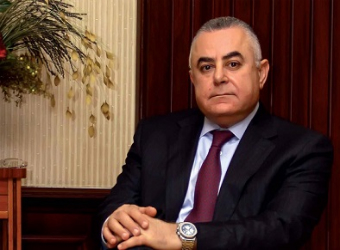Egypt’s central bank governor, Hisham Ramez, has criticized the International Monetary Fund over the manner in which his country was invited to the institution’s annual meeting in Washington.
Months of talks between Islamist President Mohamed Morsi’s government and the IMF failed to produce an agreement over a $4.8 billion loan before the army toppled Morsi on July 3.
Ramez told Reuters a senior IMF official, whom he declined to name, had invited Egypt to attend the annual meeting held earlier this month in an “inappropriate” way.
“This prompted the Egyptian government to reject the invitation,” said Ramez.
The IMF loan is widely viewed as necessary to convince foreign donors and investors that Egypt’s economy, which has been battered by political turmoil, is on the right track.
Earlier this month, IMF chief Christine Lagarde said the fund was ready to work with Egypt to help stabilize the country’s economy, citing discussions that have been going on for the past year and a half.
Ramez praised Lagarde, saying she loved Egypt like the rest of the French.
The IMF had been negotiating the critically needed loan with Egypt before the military removed Morsi from office.
The current army-backed Cabinet as a whole seems to be in little rush to resume talks with the IMF about the loan, which would require economic reform commitments that the government might find politically risky.
Egypt has received pledges of aid from several Gulf countries, including Kuwait and Saudi Arabia, expected to help the most populous Arab state avoid a balance of payments crisis and overcome fuel shortages that partly caused a wave of public anger against Morsi.
The cash injections are keeping the economy afloat, but analysts say the government still needs a long-term plan to ensure financial stability.
Foreign reserves dipped to dangerously low levels in the months before Morsi’s ouster, but have begun to recover, boosted by the billions sent by Gulf Arab allies.
